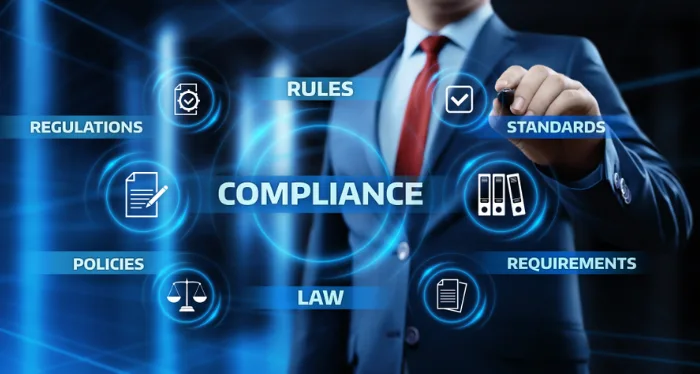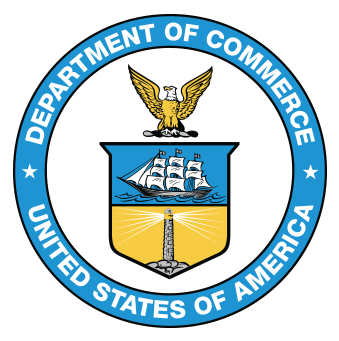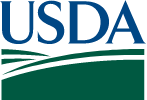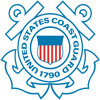Export Resources
Export Compliance

Export compliance is needed for maintaining and enforcing the integrity of the US export control system and protecting national security interests.
The Department of Commerce, through the Bureau of Industry and Security (BIS), is the primary body responsible for export compliance in accordance with the Export Administration Regulations (EAR).
Exporters and their agents must also comply with the Commerce Departments regulations of The Bureau of Export Administration (BXA) and The Food and Drug Administration (FDA) which is part of the U.S. Department of Health and Human Services.
The (EAR) defines the rules for exporting items from the USA, including dual-use items, which have both commercial and military applications.
See below to learn more.
Export Licenses, Screening and Red Flags
Certain items and destinations may require export licenses for controlled items as set forth on the Department of Commerce’s Commodity Control List (CCL), the United States Munitions List (USML) and the Nuclear Regulatory Commission Controls (NRCC).
Additionally, Screening Customers and End-Users, properly classifying your products, watching for “Red Flags” and knowing how your product will be used by your end-users are other other import components to assure compliance.
Filing Electronic Export Information
Each Exportation requires the filing of certain specific Electronic Export Information (EEI) with the Bureau of Census for approval prior to shipment.
Once approved, an International Transaction Number (ITN) will be provided to the filer of EEI, and the ITN, in turn, must be provided to the carrier.
The ITN is the US governments permission for the carrier to load the shipment on the exporting conveyance.
Most companies use Automated Export System (AES Direct) to file EEI which requires a manual re-keying of information into their system in order to secure an ITN.
At Fort, our system communicates directly computer to computer with the Bureau of Census.
We programmed our system to report EEI utilizing The Automated Export System Trade Interface known as (AESTIR).AESTIR provides Customs proprietary and ANSI X.12 record formats for transmitting commodity and transportation export data to AES.
Fort’s computer to computer connection and programs reduces filing errors and assures smooth export clearance.
- Pre-Shipment Inspection
- Fumigation Requirements
- Negotiable Bills Of Lading Restrictions
- Freight Application Restrictions (Prepaid/ Collect)
- Consul Requirements & Consular Invoice Requirement
- Processing Time For Consul Documents
- Customs Invoice Requirements
- USDA Requirements For Dairy Controls For Certificates From Aphis +AMS
- Places Of Receipt & On-Carry Points
- Booking Routines – Tied To A SOP Route
- Party (Rolodex) Names, Party Type, Locations, Contacts, Billing Codes
- Plant And Product Level Controls
- Vendors – Type, Payment Codes, Communication Protocols
- Container Equipment + Type Of Move – Route + Process Validations
- Account Master Controls, Work Loop Members + Authorizations
- USPPI
Documentation
Here are examples of documents Fort can prepare/process with local and federal agencies on behalf of the shipper, with an exceptional system of identification of mandatory documents based on product shipped and receiving country’s regulations. This is only a fraction of documents Fort can assist with.
| Commercial invoice | Export document that is legal evidence of a sale transaction. |
| Packing List | Document providing a detailed description of shipments contents without detailing pricing or value. |
| Wood / nonwood certificate | These documents are prepared according to country regulations confirming the presence of wood or lack of such. This certificate also confirms if present wood has been treated and what process was used. |
| USDA / AMS certificates | Documents prepared to confirm and certify presence of animal origin contents such as dairy, eggs, meat. Certificates are signed and stamped by appointed Veterinary service. |
| State Free Sale Certificates | According to many country regulations imported products need confirmation that they are being freely sold in the United States. These certificates also confirm the purity of exported products. |
| Health Certificates | Certificate informing the importing country that the US product is free of certain diseases. |
| Phytosanitary Certificates | Certificates relating to or confirming the presence of diseases in agricultural crops. |
| Kosher and Halal Certificates | Halal certificates confirm the product is acceptable in accordance with the Islamic Law, Kosher certificate confirms that products were produced according to the Jewish dietary Law. |
| Letter of credit and banking Documentation | Letter of credit is a commitment between the buyer and their bank to pay for goods once the exporter ships and presents required documentation. A set of documents needs to be prepared to receive fulfill payment requirements to be received by the exporter. |
| Prior notice | FDA requires Prior notice to be prepared for goods being imported or in transit through the USA. |
| Rail billing | In order to ship goods via rail a railroad bill of lading needs to be prepared separately of any documents presented for said goods. |
| Hazardous documents | Any goods considered hazardous (explosives, gases, flammable liquids, solids or substances) must be accompanied with documentation stating how such goods need to be transported and what they are. Class, hazard and all other federally regulated classifications need to be stated on such paperwork allowing carriers to legally transport the cargo. |
| Manufacturing Declaration | Document provided or prepared for the manufacturer confirming the nature and any relevant information as to the production process and where the goods were produced. |
| CAFTA and NAFTA document preparation | CAFTA and NAFTA are Free Trade Agreements that are prepared to take advantage of the lifted tariffs that were agreed upon by exporting/importing countries. |
| CARICOM invoice | Caricom invoice is a strictly agreed invoice needed by 15 countries in the Caribbean Community. This is regulated by the Caribbean Community and Common Market trade agreement to apply tariffs that were agreed upon in the agreement. |
| LOT and Expiry letters | Documents prepared to confirm the lot numbers and expiration dates that are applied to exported products |
| Free Sale Certificate | Document confirming goods are legally sold and distributed in the open market without any restrictions. This is provided by the exporting country and is accepted by most importing countries. |
| Certificate of Origin – with consideration of different countries (Israel, Chile) | Certificate issued by approved entity confirming the origin of exported products. A commonly approved form is used in most cases but some countries have prepared their own format that is accepted. |
| Chemical letters | This document is prepared to confirm the presence or lack of chemicals that are legally not allowed to be imported to certain countries. |
| Certificate of cleanliness | Certificate prepared by an outside / independent surveyor confirming that transporting vessel is free of any contaminants that may affect cargo on board. |
| Fumigation Certificate | Document confirming that any wooden components or materials used in a cargo shipment have been fumigated and what method was used. |
| Certificate of components | Set of documents provided by manufacturers to confirm traceability of all components used in the production process. |
| Certificate of Compliance | Document prepared to certify that the goods comply with the required standards outlined by the consignee or importing country. |
| Consular Documents | Many countries require that all documents pertaining to a consignment need to be certificated by their consulate or chamber to be considered a valid document used for import procedures. Which documents is strictly outlined in country regulations guidelines. |
Exporters and importers need to be aware of the various regulations and how they impact their business. Fort is in compliance and has established relationship with most agencies that regulate trade from and to the US. Below is a list of some agencies:
There are three U.S. government agencies that control the majority of exports: the Department of Commerce, the State Department and the Treasury Department.











